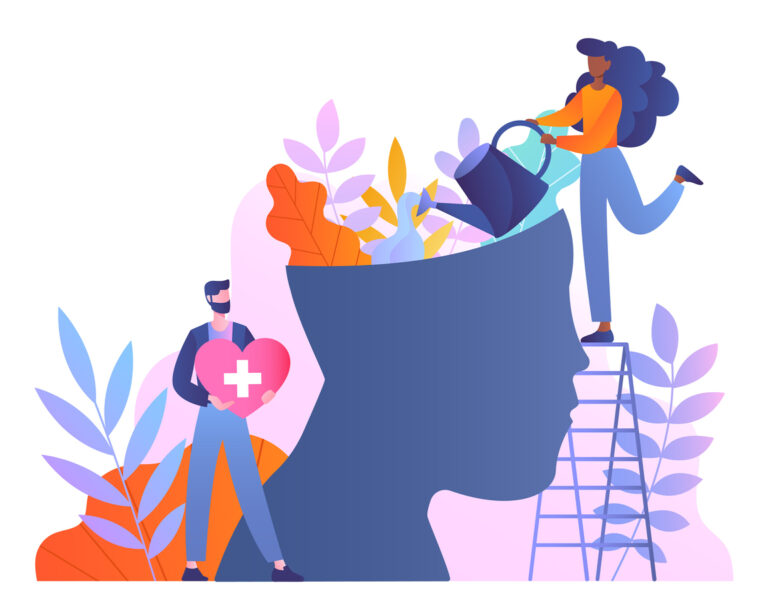Mental health apps are rapidly changing the landscape of mental health care. These apps provide users with tools and resources to manage their mental health and wellbeing more effectively. By incorporating advanced features and user-friendly designs, mental health app development has made it easier for people to access support and resources anytime and anywhere. This blog explores how mental health apps are transforming user wellbeing and the key benefits they offer.
The Rise of Mental Health Apps
The increasing awareness of mental health issues has led to a surge in the development of mental health apps. These apps cater to various needs, including stress management, mood tracking, therapy support, and self-care. By leveraging technology, mental health apps offer a convenient and accessible way for users to manage their mental health.
Key Benefits of Mental Health Apps
1. Accessibility and Convenience
One of the biggest advantages of mental health apps is their accessibility. Users can access support and resources from their smartphones or tablets, making it easier to fit mental health care into their daily lives. Whether it’s during a lunch break, at home, or while travelling, users can get help whenever they need it.
2. Anonymity and Privacy
Mental health apps provide a level of anonymity that can be comforting for users who may feel hesitant to seek help in person. Many people are concerned about the stigma associated with mental health issues, and these apps offer a private space where users can explore their feelings and access support without judgment.
3. Personalised Support
Many mental health apps offer personalised support based on user preferences and needs. For instance, users can select specific goals or areas they want to focus on, such as anxiety reduction or mood improvement. The app can then provide customised exercises, reminders, and content tailored to those needs.
4. Tracking and Monitoring
Mental health apps often include features for tracking and monitoring mental health progress. Users can log their mood, anxiety levels, or other symptoms, which can help them identify patterns and triggers. This tracking can also provide valuable insights for healthcare professionals if the user is receiving therapy or counseling.
5. Educational Resources
Mental health apps frequently offer educational resources to help users understand their mental health better. These resources may include articles, videos, and interactive content on topics such as stress management, cognitive behavioural therapy (CBT), and mindfulness. Access to this information can empower users to make informed decisions about their mental health.
6. Interactive Tools and Exercises
Many mental health apps include interactive tools and exercises designed to support users in managing their mental health. These tools may include guided meditation, breathing exercises, and journaling prompts. Such activities can help users develop coping strategies and enhance their overall wellbeing.
7. Cost-Effective Solutions
Mental health apps can be a more affordable alternative to traditional therapy or counselling sessions. While some apps may have premium features or subscription costs, many offer free or low-cost options that provide significant value. This makes mental health support more accessible to a broader audience.
Conclusion
Mental health apps are transforming user wellbeing by offering accessible, personalised, and private support. Through features like mood tracking, educational resources, and interactive tools, these apps empower users to take control of their mental health and improve their overall quality of life. As technology continues to advance, mental health apps will likely become an even more integral part of mental health care, providing valuable resources and support to those in need.
FAQs
1. What are the main benefits of using mental health apps?
Mental health apps offer benefits such as accessibility, convenience, anonymity, personalised support, tracking and monitoring, educational resources, and cost-effective solutions.
2. How can mental health apps provide personalised support?
Mental health apps can offer personalised support by allowing users to set specific goals or focus areas, and then providing customised exercises, reminders, and content based on those needs.
3. Can mental health apps track my progress?
Yes, many mental health apps include features for tracking and monitoring mood, anxiety levels, and other symptoms, helping users identify patterns and triggers.
4. Are mental health apps confidential?
Yes, mental health apps offer a level of privacy and confidentiality, allowing users to explore their feelings and access support without judgment.
5. Are mental health apps a cost-effective alternative to traditional therapy?
Yes, many mental health apps offer free or low-cost options that can be more affordable than traditional therapy or counselling sessions.




